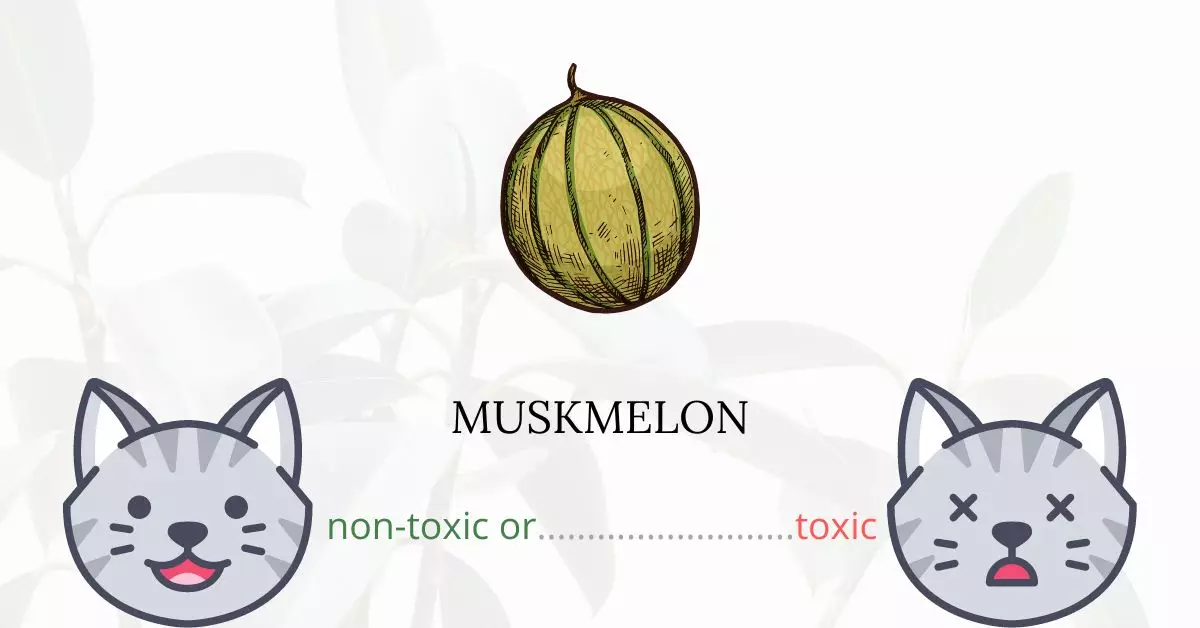Muskmelons are not toxic for cats. In fact, they are categorized as a non-toxic plant by reputable organizations, including the American Society for the Prevention of Cruelty to Animals (ASPCA).
To ensure the highest level of accuracy and reliability in our information, this article was written in collaboration with a team of experienced DVMs (doctors of veterinary medicine). Their expertise allows us to shed light on the potential risks associated with various plants, specifically Muskmelon in this context, and their effects on feline health. Additionally, our research extends to high-authority sources such as ASPCA and PetMD to ensure a comprehensive understanding of every plant’s safety profile.
Can Cats Eat Muskmelon?
Cats may safely eat muskmelon, although moderation is required. Muskmelon has a lot of fiber, folate, vitamin B6, A, and C, niacin, and potassium. It also has a low-calorie count and high fiber and water content. Muskmelon has vitamins and minerals that can benefit both you and your feline buddy.
The problem with many fruits, including muskmelon, is that they contain a lot of sugar. Even though fructose is natural, healthy sugar, it is not ideal for cats since it can induce weight gain and worsen health conditions such as diabetes.
Another risk of muskmelon is that it has a rind. And if your cat eats it, it can create serious problems—much like watermelon rinds, it can induce gastrointestinal irritation as well as get impacted your cat’s digestive tract. The rinds’ rough, fibrous skins are also a choking hazard.
When it comes to muskmelons, a few bite-size slices are probably good for most cats—though you should avoid this fruit if your cat has a sensitive stomach or is diabetic.
Too much muskmelon can induce gastrointestinal distress in both people and cats. Before preparing any fruit, it is critical to properly wash and clean the outside surface (this will prevent bacteria or pesticides from contaminating the fruit as you start to open and cut it up for your pet). Remove the seeds and skin, then cut the melon into little one- to two-inch-thick bite-sized wedges.
What is Muskmelon?
Cucumis melo, often known as melon, is a Cucumis species that has given rise to several cultivated variants. The insides might be sweet or tasteless, and the peel can be smooth, ribbed, wrinkled, or netted. In North America, the sweet-flesh variants, including the musky netted-rind kinds and the unscented smooth-rind forms, are commonly referred to as muskmelon.
Melons are occasionally dried aside from being consumed fresh. Other types are eaten raw or farmed for their seeds, which are used to make melon oil. Other cultivars are planted just for their pleasant smell. Melon flavoring is used in the Japanese liquor Midori.
Keeping Cats Away From Muskmelon
Cats enjoy soft, loose earth to stroll on. They detest and avoid spiky and rough surfaces. You can make your garden beds appear less appealing for them and less like a litter box.
Start by covering the garden soil where cats congregate with twigs until your spring plants establish themselves. Place the twigs a few inches apart across the bed.
You can also make garden stakes out of wooden chopsticks! Experiment with different spacing options. The goal is to place them at a such tight spacing that the kitten has difficulty turning around.
Plants to Avoid For Your Cats
If you are a cat owner and unsure if the plants growing in your yard are harmful to your cats, check out this list of toxic plants for cats. You can also check our list of non-toxic plants for cats.





